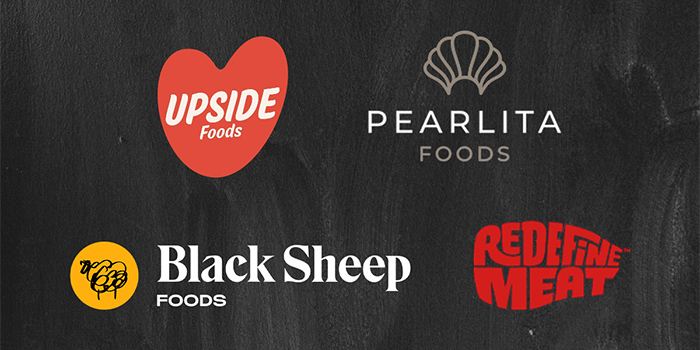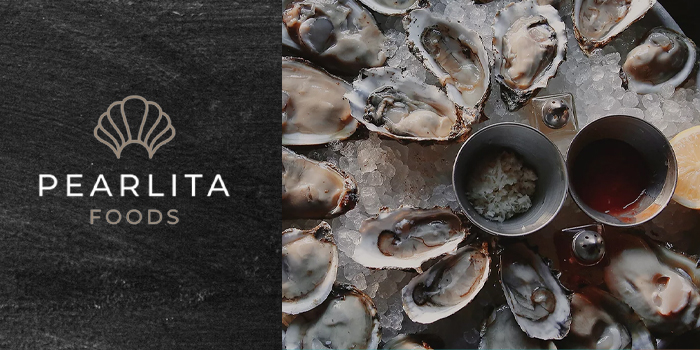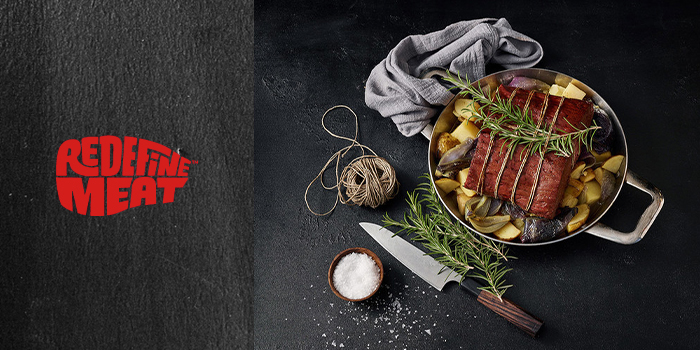From Sheep to Seafood, Alt-Protein Deals Ramp Up Across Categories

The race to increase variety with more complex formats within the animal-free and plant-based protein space appears to be heating up, following a busy week of M&A activity and new product announcements.
With consumer demand for alternative proteins on the rise, many food companies have sought to look beyond the array of vegan-friendly nuggets and “bleeds-like-meat” burgers that are already commercially available, and towards producing whole muscle cuts and seafood alternatives on a commercial scale.
Data suggests that there’s something to that: a 2021 report from sustainability platform abillion found that 78% of consumers are willing to try alt-seafood products if there is clear messaging about the products’ taste and sustainability attributes and also found there is significant consumer demand for “species-specific” alternatives rather than a generic fish stick product. They’re also interested in more-sustainable products, like cultivated protein.
Here’s a recap of recent news:

Black Sheep Foods Raises Over $5 Million in Seed Round
San Francisco-based Black Sheep Foods brought in $5.25 million from a group of investors including AgFunder, Bessemer Venture Partners, New Crop Capital, Siddhi Capital, Smita Conjeevaram and Meera and Ashok Vasudevan of (ID) Tastybites. The deal, announced earlier this week, comes only three months after Black Sheep launched its plant-based lamb product in the Bay Area at Greek fast-casual restaurant chain Souvla.
“We’re encouraged by the momentum the plant-based movement is currently seeing, evidenced by our support from a diverse array of investors and restaurants, and what that means both for Black Sheep Foods but also for the future of our planet,” said co-founder Sunny Kumar, in a press release.
The plant-based food company aims to create vegan-friendly alternatives to “heritage breed meats and wild game” and said this new funding supports its mission and operations to continue “democratizing” the flavors of lesser-known, plant-based game meats.
The company also introduced its alt-lamb meatballs to Delta Airlines through its partnership with Souvla this month and is expanding its reach in foodservice with a range of additional partnerships with Indian, Arabic and Mediterranean restaurants in the San Francisco-area including Rooh, Chezchez and Beit Rima.
“Black Sheep Lamb is an incredible product with impeccable taste and texture,” said Pujan Sakar, Chef de Cuisine at Rooh, in a press release. “Its applications are diverse and offer enormous opportunities for Indian recipes which traditionally feature animal lamb… Black Sheep Lamb opens up new possibilities for gluten-free and vegan recipes, which is especially exciting within the fine-dining format, ushering in a new sense of sophistication and innovation to our green cuisine.”

Pearlita Foods Introduces Cell-grown Oysters
Cultivated mollusk seafood company Pearlita announced its official launch earlier this week, as well as the opening of its headquarters in North Carolina’s Research Triangle Park. The food tech company received initial funding from VC firms Sustainable Food Ventures and Big Idea Ventures “New Protein Fund” to develop the first cell-grown oyster.
“Instead of harvesting and killing oysters from the sea we grow them, using cellular agriculture,” explained Joey Peters, Pearlita co-founder and marine biologist, in a press release. “We are creating a mixture of nutrients to raise cells in a controlled environment free of disease or chemical contamination. By culturing cells we are providing a new untapped source of seafood, which is meant to support wild populations by reducing the impact from fishing.”
The company cited North Carolina’s expansive coastline and seafood industry as well as the biotech-focused environment in Research Triangle Park as driving factors behind the placement of its research lab.
“It only makes sense to base Pearlita Foods out of Raleigh,” said Nikita Michelsen, co-founder and CEO of Pearlita, in a press release. “Not only is North Carolina the second largest estuarine system in the country, it is also the fastest-growing biotech and future of food hub. So we will be close to the ecosystems where Oysters thrive and amongst other entrepreneurs – both which we believe will accelerate our growth”

Redefine Meat Closes $135 million Investment Round
Redefine Meat, maker of the “New Meat” line of plant-based steaks and lamb chops, is reportedly pursuing global expansion following the close of a $135 million funding round, announced Sunday. The round was led by Hanaco Ventures and Synthesis Capita with participation from existing investors and brings the company’s total funding to $180 million.
The plant-based meat maker has taken on the challenge of replicating whole-cuts with 3D printing technology that recreates the form and texture of a conventional cut. The products became commercially available last October with an initial rollout to high-end restaurants across UK, Germany, the Netherlands and Israel.
The meat alternatives are made from a blend of pea protein, soy, beetroot, chickpeas and coconut fat and use the company’s plant-based ingredient blends such as Alt-Muscle, Alt-Fat and Alt-Blood to then build the multilayered steak or lamb chop.
While the products are currently available at over 200 restaurants in Israel alone, Redefine has also emphasized its plans to bring the plant-based proteins to the United States this year. Food tech startups such as The Better Meat Co and Meati foods, which are currently embroiled in a legal dispute over plant-based meat technology, are also attempting to go beyond easier-to-produce form factors such as burgers and nuggets in pursuit of whole-cut protein alternatives.

UPSIDE Foods Acquires Cultivated Seafood Brand Cultured Decadence
Cultivated protein company UPSIDE Foods, formerly known as Memphis Meats, announced it has acquired Wisconsin-based cell-cultured seafood maker Cultured Decadence this week. This deal expands Upside’s reach beyond its initial animal-free meat and poultry products and into “high impact” seafood products like lobster and other crustaceans.
“Cultivated seafood also has a tremendous potential to benefit the world,” said Dr. Uma Valeti, Founder and CEO of UPSIDE Foods, in a press release. “Cultured Decadence’s technology is incredibly promising, and their team is filled with passionate, smart individuals who want to make our favorite food a force for good. We’re thrilled to welcome the Cultured Decadence team to the UPSIDE family and are excited that the scientific, technological, and production infrastructure we have built over many years can help accelerate the mission impact of this team.”
Cultured Decadence will remain in Wisconsin and serve as UPSIDE’s Midwest office. The company has already adopted UPSIDE’s name and branding, and has integrated its website with its new owner. The announcement comes only two months after Upside Foods opened its Engineering, Production, and Innovation Center (EPIC) to produce cultivated meat, poultry and seafood products in California.
“We’ve long admired UPSIDE’s innovation and leadership in the cultivated meat industry,” said John Pattison and Ian Johnson, co-founders of Cultured Decadence, in a press release. “UPSIDE’s unparalleled R&D and scale up capabilities will significantly accelerate the commercialization of cultivated delicious, sustainable and humane seafood.”
















